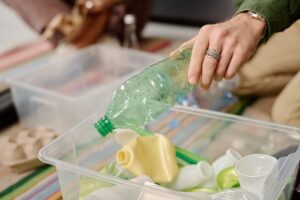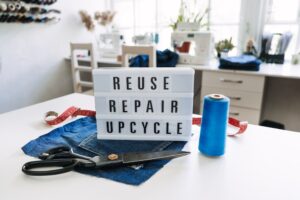TerraCycle is at the forefront of revolutionizing waste management, driven by their mission to eliminate the idea of waste. With innovative recycling solutions, a commitment to a circular economy, and a focus on environmental impact, TerraCycle is paving the way toward a more sustainable future.
Innovative Recycling Solutions
TerraCycle’s approach to recycling sets them apart. They tackle the challenge of hard-to-recycle items head-on, partnering with brands, retailers, and communities to create recycling programs that go beyond traditional methods. Through their free and paid recycling programs, they provide accessible solutions for items like toothbrushes, snack packaging, cigarette butts, and toys.
Transitioning to a Circular Economy
TerraCycle recognizes that recycling alone is not enough. They are dedicated to promoting a circular economy, where resources are used efficiently, and waste is minimized. Encouraging the use of recycled content in manufacturing reduces the need for extracting virgin materials. Additionally, their innovative initiative, Loop, focuses on reusable packaging, allowing brands to develop sustainable alternatives to single-use packaging.
Environmental Impact and Verification
TerraCycle’s commitment to environmental impact reduction is verified through auditing and verification processes. Partnering with reputable organizations like Bureau Veritas, they ensure the proper recycling and tracking of waste materials. Their recycling models have been shown to have lower environmental impacts compared to traditional disposal methods, making their approach truly sustainable.
Collaboration and Advocacy
TerraCycle understands that solving the waste crisis requires collaboration and advocacy. They actively engage in partnerships and initiatives related to sustainability and waste management. They work towards systemic change by participating in committees and advocating for extended producer responsibility and circular business models.
Community Engagement and Education
TerraCycle believes in the power of education and community engagement to drive sustainable practices. They provide educational resources to raise awareness about waste management and empower individuals to make responsible choices. Through their recycling programs, they encourage active participation, making it easy for communities to contribute to a sustainable future.
Final Thoughts
TerraCycle’s innovative solutions, commitment to a circular economy, and dedication to reducing environmental impact make them a driving force in revolutionizing waste management. They inspire individuals, brands, and communities to take responsibility for their waste through collaborative efforts and community engagement. Through their work, TerraCycle is creating a sustainable future where waste is eliminated and resources are valued.
TerraCycle sets an example for businesses and individuals by revolutionizing waste management practices. Together, we can follow their lead, adopting sustainable practices and working towards a world where the idea of waste becomes a thing of the past.
Related Topic:
Building an Eco-Friendly Future: From Extraction to Recycling with Sustainable Materials
The need to transition from extraction to recycling and embrace sustainable materials has become increasingly critical in today’s world. As we strive to build a more eco-friendly future, it’s essential to understand the environmental and social impacts of extracting virgin materials and the benefits of utilizing recycled materials. This blog post explores the journey from extraction to recycling, highlighting the importance of sustainable practices and their role in shaping a greener world.
Extracting Virgin Materials
Extracting virgin materials involves obtaining raw resources directly from nature or primary sources. However, this process comes with significant environmental consequences. Mining operations, for instance, lead to habitat destruction, loss of biodiversity, and water pollution. Moreover, the extraction and processing of virgin materials contribute to greenhouse gas emissions, exacerbating climate change. Additionally, the social impacts of extraction activities, such as health risks for workers and communities, cannot be overlooked.
The Recycling Process: From Collection to Manufacturing:
The process begins with the collection of recyclable materials from various sources, including households, businesses, and recycling centers. Through separate collection bins for different materials, efficient sorting becomes possible. These collected materials undergo processing, which includes cleaning, shredding, melting, and refining to transform them into usable forms. The recycled materials are then utilized in the manufacturing of a wide range of products.
Environmental Benefits of Using Recycled Materials
The utilization of recycled materials brings forth numerous environmental benefits. First and foremost, it helps conserve valuable natural resources by reducing the need for extracting and processing virgin materials. This, in turn, helps preserve ecosystems and protect biodiversity.
Moreover, manufacturing products from recycled materials requires less energy than virgin resources, resulting in lower greenhouse gas emissions and a reduced carbon footprint.
Furthermore, recycling diverts materials from landfills, effectively reducing waste volume and mitigating environmental problems. By relying on recycled materials, we can prevent pollution and minimize environmental degradation caused by extraction activities.
Economic and Social Implications of Recycling
The shift towards recycling and sustainable materials also holds economic and social implications. Recycling industries create job opportunities and stimulate economic growth.
Moreover, recycling often leads to cost savings in the long run, as the energy and resources required for recycling are generally lower than virgin material extraction. Additionally, promoting recycling practices fosters social awareness and engagement, encouraging communities to participate in waste management and sustainability initiatives actively.
Challenges and Future Directions
While recycling is crucial for a sustainable future, several challenges must be addressed. Enhancing recycling infrastructure and processes, such as efficient collection and sorting systems, is essential. Educating and raising awareness among consumers regarding the importance of recycling and proper waste disposal is equally critical. Policymakers must implement supportive regulations and incentives to promote recycling practices at both individual and industrial levels. Moreover, advancements in recycling technologies and innovations can further optimize the recycling process and improve its efficiency.
Final Thoughts
Transitioning from extraction to recycling and embracing sustainable materials is vital for building an eco-friendly future. By understanding the environmental and social impacts of extracting virgin materials and recognizing the benefits of using recycled materials, we can make significant strides toward sustainability. It requires collective efforts from individuals, industries, and policymakers to prioritize recycling, invest in recycling infrastructure, raise awareness, and implement supportive policies. Together, we can create a greener and more sustainable world for generations to come.








Reader Interactions